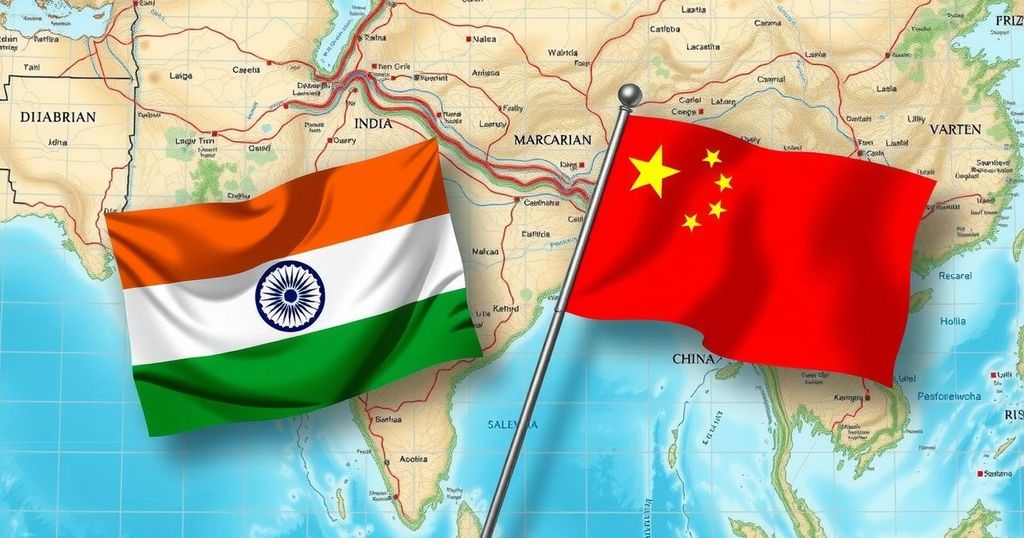India and China Commit to Enhance Cross-Border Cooperation

India has expressed its commitment to collaborate with China on cross-border cooperation, as discussed in recent talks between Special Representatives Ajit Doval and Wang Yi. Key topics include the resumption of the Kailash Mansarovar Yatra and border trade. These discussions follow a bilateral agreement aimed to disengage frontline forces, reflecting efforts to normalize relations after recent tensions regarding territorial disputes.
India has pledged to collaborate with China on enhancing cross-border cooperation, following a significant meeting between Ajit Doval, India’s National Security Advisor, and Wang Yi, China’s Foreign Minister, in Beijing. This marked the first official dialogue concerning the border issue in almost five years. The discussions focused on advancing cross-border exchanges, particularly regarding the Kailash Mansarovar Yatra and border trade, building on a recent decision to disengage forces in the Ladakh area of the Line of Actual Control (LAC).
During their assembly, the Special Representatives elicited positive prospects for cooperation, including data sharing on trans-border rivers. An external affairs ministry spokesperson emphasized the progressive nature of these discussions, which have encouraged forward momentum in cross-border relations. Importantly, the Kailash Mansarovar Yatra, a pilgrimage known for its spiritual significance, has been halted since 2020 due to tensions along the border, which escalated into a military standoff and tragic confrontations in Galwan Valley that claimed the lives of both Indian and Chinese soldiers.
The recent dialogue followed a prior agreement to disengage from conflict areas and reflects an ongoing commitment to normalizing relations, highlighted by a recent meeting between Indian Prime Minister Narendra Modi and Chinese President Xi Jinping. The leaders agreed to reinforce mechanisms to address the border dispute, emphasizing a fair and reasonable framework for resolving boundary issues outlined in a previously established agreement from 2005.
While progress is noted in trade relations, the spokesperson indicated that discussions are ongoing, suggesting a phased approach to resumption. Notably, discrepancies arose following the talks concerning a claimed “six-point consensus” by the Chinese foreign ministry, which was not acknowledged in the Indian readout, demonstrating a need for clarity in communication. Despite attempts at a joint statement, both nations issued separate narratives, underscoring the complexities that remain in their bilateral relationship.
The border dispute between India and China has a long and complex history, intensifying significantly due to military mobilizations and subsequent clashes in recent years, notably the 2020 Galwan Valley incident. Following a strategic disengagement agreement in Ladakh, both nations are keen on mitigating tensions and promoting cooperation. Renewed dialogues reflect a concerted effort to address longstanding issues, advance trade relations, and enhance cross-border connectivity, particularly through initiatives like the Kailash Mansarovar Yatra, which holds cultural and religious importance for many Indians. The geopolitical context surrounding these negotiations is influenced by broader regional dynamics and the need for peaceful coexistence.
In summary, India’s announcement to work collaboratively with China on cross-border cooperation marks a significant development in the ongoing dialogue surrounding territorial issues. Continuous discussions, led by high-level representatives, demonstrate a commitment to normalizing relations and addressing trade and pilgrimage concerns following years of tension. While some discrepancies were observed in narratives post-meeting, the overall trajectory of these talks is indeed optimistic, aiming towards mutual understanding and strategic cooperation.
Original Source: www.hindustantimes.com








